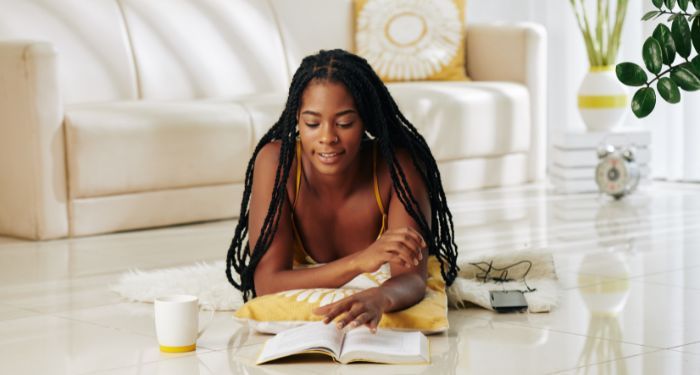This content contains affiliate links. When you buy through these links, we may earn an affiliate commission.
The act of reading is generally thought of as how we cozy ourselves up on a cold or rainy day, how we tune out busy commutes, and how we connect through book clubs. Reading on my break at work is especially satisfying, as it provides a distraction while also letting me silently recharge.
Still, why is reading associated with feeling restful and safe, especially since you can have so many different reading experiences? It can make us feel uplifted and wistful, but also anxious and full of dread. Still, no matter what sensations the book might invoke in you, it’s also incredibly healthy for your brain.
An article on Healthline cites a 2013 study where “researchers used functional MRI scans to measure the effect of reading a novel on the brain […] As tension built in the story, more and more areas of the brain lit up with activity. Brain scans showed that throughout the reading period and for days afterward, brain connectivity increased.” Reading builds vocabulary, encourages empathy, and can help us stay mentally sharp as we age. Healthline also points to a 2009 study that discovered even just “thirty minutes of reading lowered blood pressure, heart rate, and feelings of psychological distress”.
Although I have personally felt some mild stress while reading, book content depending, the actual activity itself feels peaceful overall, especially compared to watching something. Plus marathon reading a book never makes me feel brain-fried the way marathoning a show does.
Reading books is a satisfying escape that makes you smarter and calmer. A real win-win scenario. As someone who is especially fond of book culture, I’ve compiled eight nonfiction and fiction titles that focus on examining the act of reading and how it affects our day-to-day lives.
Nonfiction Books About Reading
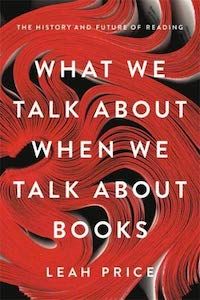

What We Talk About When We Talk About Books: The History and Future of Reading by Leah Price
Written by an English professor from Rutgers University, this explores the importance of books and literacy in our culture. Price has discussions with librarians and booksellers, and she examines the condition of historical books to analyze how often they were actually read. If you are looking for a more academic-style essay on reading culture, this might be the one to pick up.
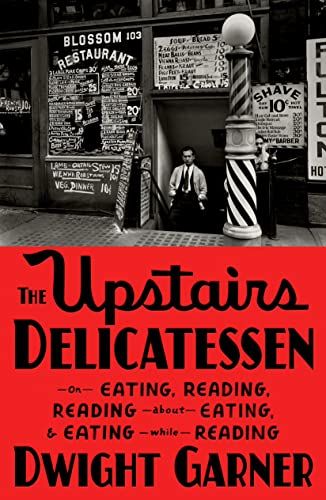

The Upstairs Delicatessen: On Eating, Reading, Reading About Eating, and Eating While Reading by Dwight Garner
This combines two of my favourite things—deli food and reading—which are also the loves of author Dwight Garner, a well-respected New York Times book critic. In his humorous memoir-meets-ode-to-his-interests, he goes meal by meal while analyzing books and writers he loves.
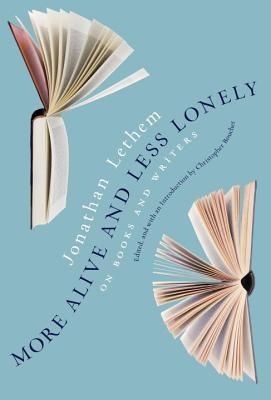

More Alive and Less Lonely: On Books and Writers by Jonathan Lethem
Lethem is one of my favourite authors, and this 2017 essay collection is all about celebrating books and writers. While I wish he’d incorporated more women writers, his passion for his literary influences is nevertheless enjoyable and filled with insight.
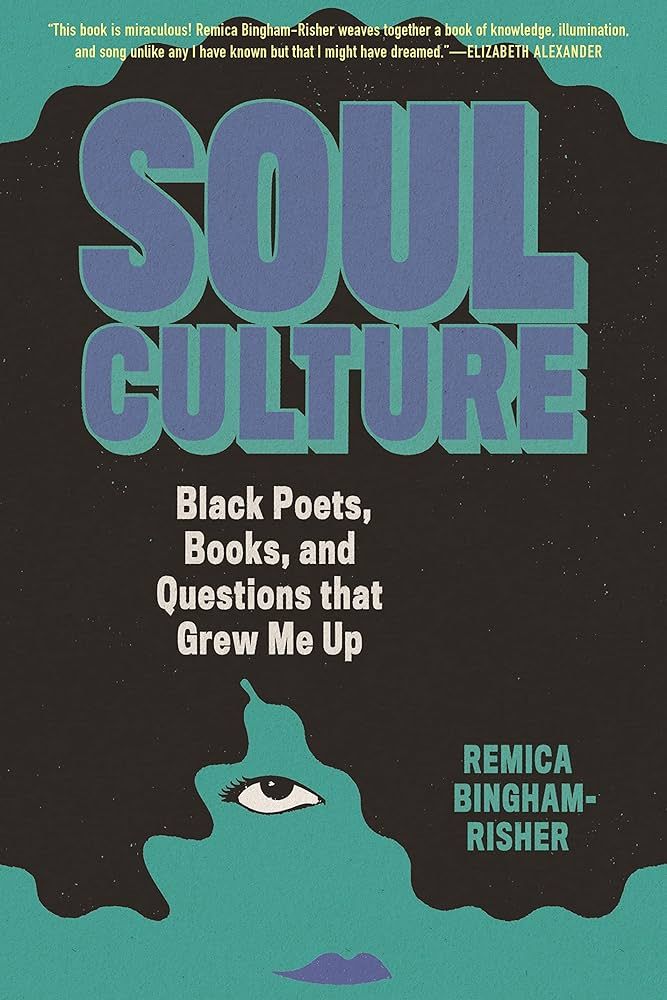

Soul Culture: Black Poets, Books, and Questions that Grew Me Up by Remica Bingham-Risher
Bingham-Risher’s essays are a vibrant fusion of cultural analysis, interviews with Black poets, and personal essays. A poet herself, she surveys the impact of identity, cultural traditions, and history on how communities create and consume writing.
Fictional Books About Reading
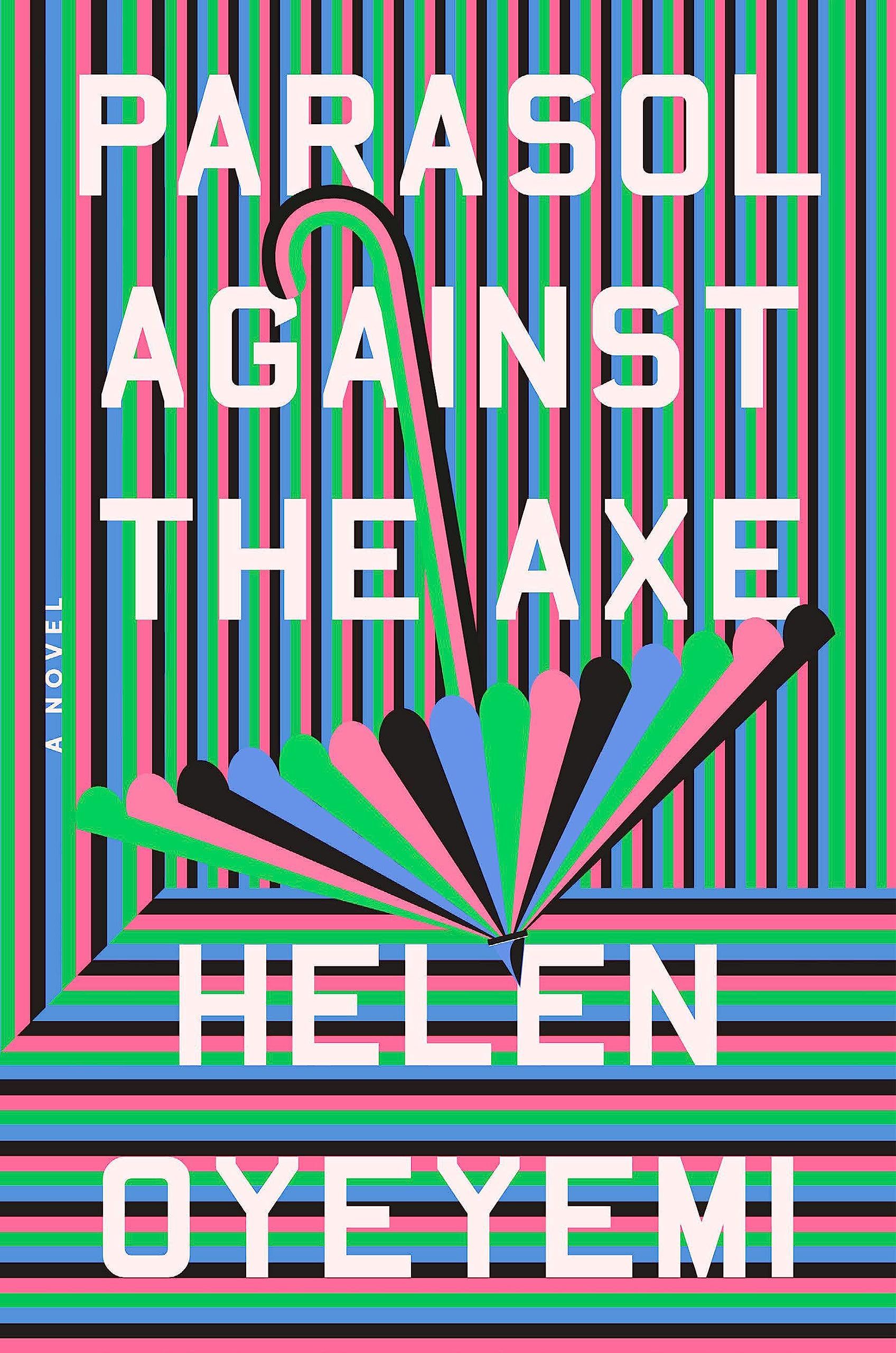

Parasol Against the Axe by Helen Oyeyemi
Oyeyemi’s latest is hard to describe, but it does heavily examine books and reading and people’s relationships to both. Each time Hero Tojosoa opens up her copy of the book Paradoxical Undressing, the contents and characters are entirely different—they also shift depending on who is reading the book. The story will have readers contemplating what they’ve just read and its meaning, in a literary experience that they won’t soon forget.
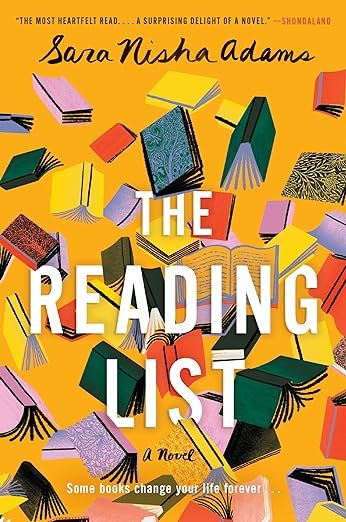

The Reading List by Sara Nisha Adams
Mukesh is a lonely widower, and Aleisha is an anxious teen. Both feel lost and disconnected from their families. Aleisha is working at the local library one summer when she finds a list of novels in a returned copy of To Kill A Mockingbird—as she works her way through reading the list of recommended books, it helps her deal with a turbulent home life. When Mukesh comes to the library to embrace reading and connect with Priya, his granddaughter, he meets Aleisha and she shares with him her reading list. The books bring the two of them together and help them find solace in their new friendship.
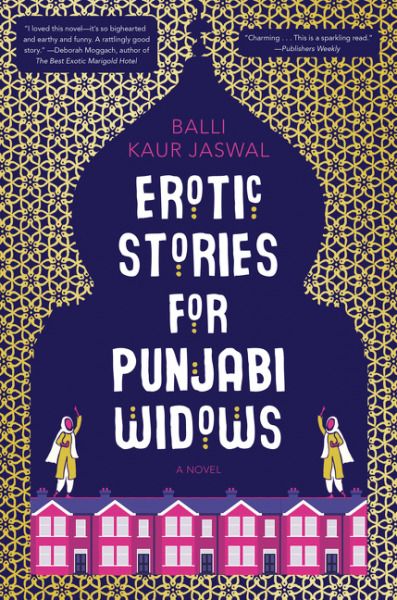

Erotic Stories for Punjabi Widows by Balli Kaur Jaswal
Nikki, the daughter of Punjabi immigrants, lives in London and has tried to distance herself from the traditional Sikh community where she grew up. When Nikki takes a job teaching creative writing at the local community centre, she finds that the illiterate Sikh widows are most interested in consuming and sharing sexy stories. This is a warm and funny book that emphasizes the importance of connecting through stories.
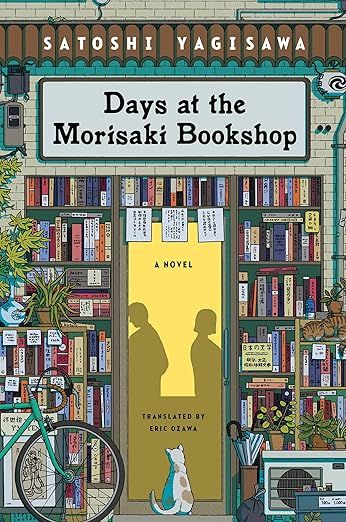

Days at the Morisaki Bookshop by Satoshi Yagisawa
Takako is living a great life until her boyfriend Hideaki lets it drop that he’s been cheating on her and plans to marry the other woman. Then everything begins to crumble as she loses her job, her home, and her friends. When her uncle Satoru offers her a position at his second-hand book store, she reluctantly takes it—mostly so she can live in the rent-free apartment above the shop—but it does eventually lead her to discover a love of reading and allow her to meet new people.
Books and reading are important to me, given that I’m a librarian who writes for Book Riot. But it seems to still be important to a lot of other people too, regardless of how many times popular culture tries to sell us on the idea that no one reads anymore.
If you want to know more about reading trends and statistics, we compiled data on that in 2022. Reading continues to be an activity we use to relax, experience something new, and strengthen our cognitive abilities—and I don’t personally think that’ll be changing anytime soon.

